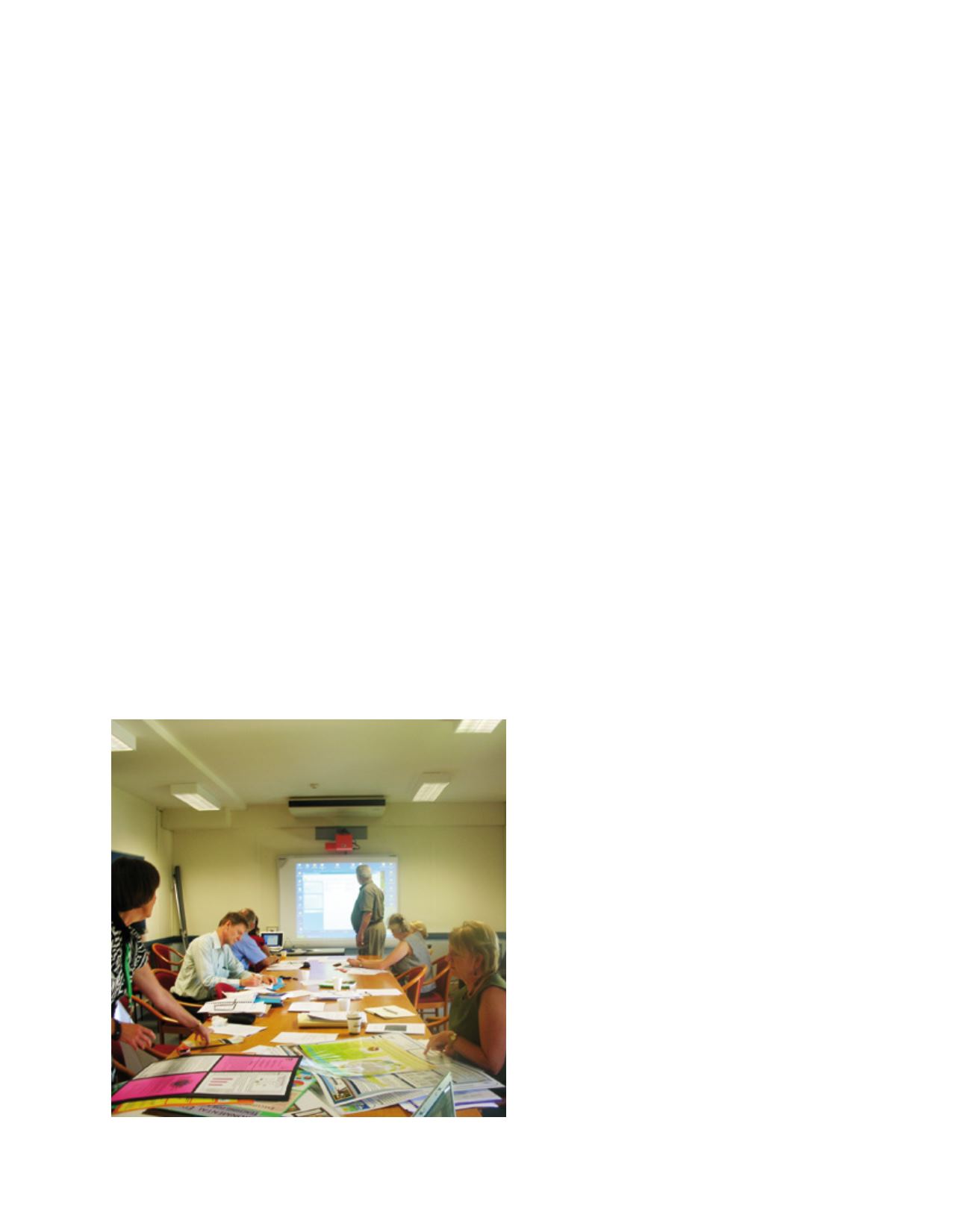

[
] 152
To take ESD into the business sector, ARIES created
and facilitated change towards sustainability in the
learning and teaching focus of five Australian business
schools aand operations and their partner corpora-
tions. The specific focus of the research was the MBA
programme within the participating business schools.
The ARIES programme
10
brought together sustain-
ability champions from business schools in partnership
with corporations across Australia in a collaborative
process of learning-based change to develop their
understanding of sustainability and accelerate change
to achieve tangible sustainability outcomes.
Business schools, in collaboration with the partner
corporations, mainstreamed subject content about
sustainability and experiential learning processes into
their core and elective courses. Some even introduced
new degree programmes in sustainability. They also
created opportunities for their students to undertake
practical sustainability projects with their corporate
partners.
As a result of this project, specialist courses on
sustainability were revised or introduced; there were
higher levels of engagement between the corporate part-
ners and their employees and the wider community;
corporate partners reviewed their leadership, corpo-
rate social responsibility and supply chains; there was
an increased understanding of the learning benefits of
linking operational practice in sustainability to teaching
content; and networks that supported sustainability-
related curriculum development were formed.
Accounting for sustainability
The business world is under growing pressure to
institute various forms of corporate sustainability.
Government, employees, investors, customers and the
general public are now demanding more responsible
and transparent corporate behaviour. Accountancy is
regarded as one of the professions with the most imme-
diate impact on sustainability, through its links with
a wide range of industries and economic activities. In
Australia, as in other countries, there are now moves to
integrate sustainability into the range of advisory, regu-
latory, reporting and financial services that accountants
provide, both in-house and externally.
ARIES is working with the professional account-
ancy associations, accountancy schools in universities,
key government departments, leading accountancy
firms and other stakeholders to foster change towards
sustainability in this profession.
During this project,
11
ARIES created new avenues
for dialogue by facilitating an inaugural roundtable
meeting which brought together representatives of the
accounting profession, government, business, industry,
the finance sector, professional groups and universities.
This roundtable exchange clearly illustrated the need
for universities and the national professional associa-
tions to engage in a more productive level of dialogue
with regard to embedding key skills for sustainability in
accounting education and professional development. In
identified.
8
These agents of change, located in five teacher educa-
tion institutions in Queensland, undertook action research to
mainstream ESD within their particular system. By doing so, each
participating group increased its capacity to bring about change.
Other outcomes of this project included the development of depart-
mental policies, student involvement in education for sustainable
development forums, and enhanced skills amongst their fellow
teacher educators. The Stage 3 project
9
built upon Stages 1 and
2 to implement the mainstreaming of education for sustainable
development in teacher education in New South Wales and the
Australian Capital Territory.
Drawing on this research, ARIES suggests the following five
enabling actions for mainstreaming education for sustainability in
pre-service teacher education:
•
Collaborate
and create partnerships with curriculum develop-
ers, policymakers and teacher accreditation bodies
•
Develop an ethos of sustainable practice
– it is important
to ‘walk the talk’ at all levels of the system, from classroom to
national policy
•
Connect existing sustainability content
– drawing it together
can increase its influence
•
Create time and opportunitie
s – people need time to have new
conversations and collaborate if they are to embed ESD into
their policies
•
Provide experiential learning
to encourage students to focus
on ESD and to develop their own personal understanding of its
relevance.
Sustainability education in business schools
A key theme of the National Action Plan is to foster sustainability
in business and industry. Through partnerships, the intention is to
build capacity to plan, adopt appropriate frameworks and tools, and
harness incentives to make changes for sustainability.
ARIES has focused on pre-service teacher education
Image: ARIES
















